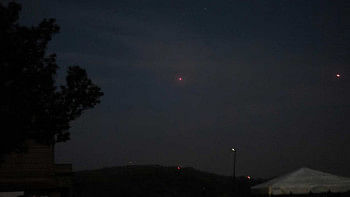When truth is under siege
MORALITY has been on a nosedive in this country and elsewhere as well. And you see that through the very public celebrations of the birthday of former prime minister Khaleda Zia. Of course she has all the right in the world to observe the day. Of course her fans and followers will commemorate the event. But why must they do it in such gleeful fashion given that the day also happens to be one when we remember the darkest moment in our history? When an entire nation is in mourning, why must a politician or her followers persist in trying to denigrate the memory of a man whose leadership caused this country to emerge into freedom?
Values, as you will notice, have taken leave of some very large sections of society. But some of us yet uphold some of the principles instilled in us in our childhood. We do not laugh when a neighbour dies. We do not play music when a friend or relative passes away. We speak in soft tones when someone is busy in prayer. We detest those who raise controversies about the remains or otherwise of a dictator, however unsavoury his exercise of power might have been, in the grave. Because we hold fast to these values, we do not appreciate public birthday celebrations on August 15. To those couples who tied the marital knot on August 15 after 1975, we ask: Why? When a whole nation mourns, it can only be Lucifer who will sing and dance in the dark land of conceit.
The morality question assails us in other areas as well. Almost everybody you know is horrified at the manner in which the secretary of Odhikar has lately been treated. The sense of horror is understandable given the manner of the man's arrest. But where were these concerns when Odhikar began informing the world of what it called a huge number of casualties arising out of the flushing of the Hefajatis in May? Neither Odhikar nor those who have seen 'genocide' in the government's action in May thought it necessary to condemn the mayhem and violence perpetrated by the Hefajatis. On top of that, they have sought to undermine the country abroad with falsehood and figures that do not match the reality on the ground.
Odhikar refused to provide the government with details of the sixty one people it said had died in the security forces' action in May. But it did hand over the list to certain human rights organisations in the country and abroad. That only complicates things. You choose your friends abroad and make them happy but you defy your own government for reasons you cannot logically or legally explain. You raise the spurious argument that the security of the families of the 'victims' could be in jeopardy if the government gets your list of the 'dead.' That is not good enough.
If Odhikar has a case, if it has supporting evidence for the allegations it has come up with, it should have kept the government informed and it should have taken the media into confidence. It has not done that. Neither has it informed its friends of the terror the Hefajatis resorted to in the days before the government cracked down on them in May. Bias is bad policy. Being one-eyed is a mark of danger.
When your own fellow citizens and their foreign friends begin breathing down your neck, you tend to feel there should have been a Lee Kwan Yew in this country. The Singaporean elder statesman has perfectly good notions of how Asian democracy should be working, of how nonsense cannot and must not be tolerated. Observe: you have Human Rights Watch making a sweeping statement of the Ghulam Azam trial having been flawed. Fine, but when HRW shows this concern for the Jamaat leader, it should also demonstrate its readiness to uphold its moral responsibility, which is to inform its friends and the international community of the crimes committed by the Jamaat and its leadership forty two years ago in occupied Bangladesh. A concern for the human rights of war criminals is all right as long as it comes with a serious, detailed expression of concern for the families of those murdered by these criminals. If HRW does not know of 1971 or has forgotten all about it, it can do the simple thing of checking newspaper reports published worldwide forty two years ago. The evidence is out there.
There are bigger, more substantive questions that are not raised in Bangladesh these days. It is all right for people to be worried about Mahmudur Rahman or Adilur Rahman Khan, to be critical of the way the powers that be have been treating them. But why must they look away from other and similar incidents that happened not many years ago? Bangladesh's Hindus, always a vulnerable lot, went through a fresh spate of terror when the Bangladesh Nationalist Party and the Jamaat rode to power in 2001. Did those who defend the Hefajatis today draw global attention to the plight of the Hindus back then? How many civil rights organisations in the country have gone hunting down the bands of Muslim fanatics who torched Buddhist temples and homes in Ramu last year?
Human rights are fine. But when this whole issue of rights comes wrapped in layers of untruth, in sordid instances of photo-shopping and manipulation of figures, there is very real cause for worry. You do not have to, you must not, take it lying down.
The writer is Executive Editor, The Daily Star.
E-mail: [email protected]

 For all latest news, follow The Daily Star's Google News channel.
For all latest news, follow The Daily Star's Google News channel. 



Comments